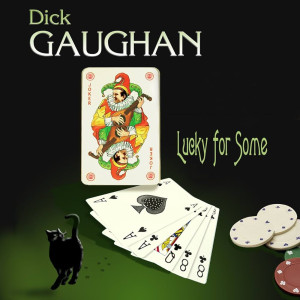 Dick Gaughan comes with a huge reputation and following as a traditional singer and songwriter, so I was quite excited and expected to hear something good. Unfortunately, I can’t say this album set my pants on fire. Quite the opposite in fact. I have heard much better albums from Dick in the past as well as good, powerful live performances. Sadly, this album doesn’t really do him justice. However, I am sure his devoted fans will like it.
Dick Gaughan comes with a huge reputation and following as a traditional singer and songwriter, so I was quite excited and expected to hear something good. Unfortunately, I can’t say this album set my pants on fire. Quite the opposite in fact. I have heard much better albums from Dick in the past as well as good, powerful live performances. Sadly, this album doesn’t really do him justice. However, I am sure his devoted fans will like it.
Dick Gaughan has a very nasal voice and sings in a very strong Scottish accent. In the past he has been noted not only for some very passionate arrangements of traditional songs, but also for writing some very controversial, if slightly paranoid, songs on subjects many songwriters shy away from. To be fair, he does it very well. It’s the sort of thing you will either love or hate — there are no half measures! I felt after listening to the album a few times that it offered little that was new or any memorable tunes.
The album was recorded in the Vegas Suite studio, and (in my opinion) it is spoilt by too much ’empty hall’ reverb being added. It made it very hard to catch the lyrics; in fact it was almost impossible on several tracks. I had to resort to reading them in the cover notes booklet. It was only then, on reading the lyrics, that I realized there might be one or two decent songs here with a lot of potential. It will be interesting to see what they sound like live, or if other artists do covers of them.
The album has 10 songs, eight of which are written by Gaughan. Of the other two songs, one is Gaughan’s arrangement of the ‘Bleacher Lassie O’ Kelvinhaugh’ (traditional) and the other a song by Jim Page ‘Anna Mae’ about the unsolved 1975 murder of American Indian activist Anna Mae Pictou Aquash. The title song for the album comes up at the second track. This song is about the gullibility found in all who have been ripped off by sharp talking businessmen, as found in all walks of life. This song followed the opening track ‘Whatever Happened’, a protest song that droned on for over six and half minutes. Other songs have various themes, from one based on a extremist religious bigot, a merchant soldier, a will to change a world run by fools, to a song praising (or is it bewailing?) a rock band on the road. The best song on the album for me, in fact, the one reason for buying the album, is ‘Come Gie’s A Song’. This song was originally composed as part of the suite ‘Timewaves’ commissioned by the 2004 Celtic Connections Festival. It features some nice work by Mary MacMaster on the Clarsach. Other guest musicians include Brian McNeill on fiddle, with backing vocals supplied by Stephen Quigg and Ian MaCalman.
Conclusion: For a top artist, this album didn’t quite come up to my expectations. Spoilt only by recording techniques, those living outside Scotland may have trouble understanding some of the lyrics…but you can always read the cover notes! After listening to it a dozen times it does grow on you.
(Greentrax Recordings, 2006)
